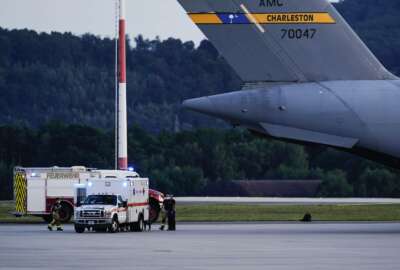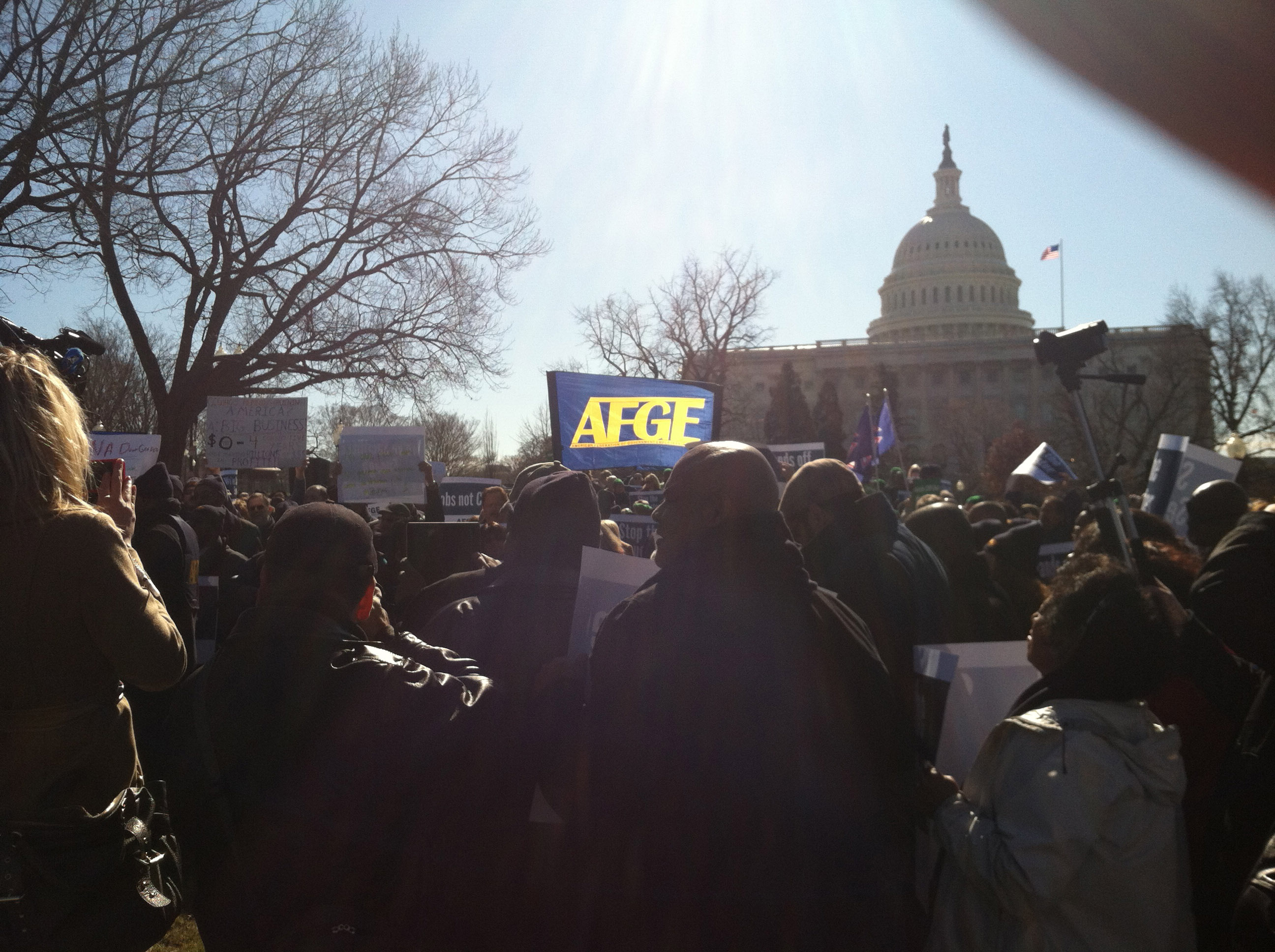First win in Europe: DoD employees get union representation at German military installation
Almost 400 workers at the Kaiserslautern Military Community Center Exchange in Germany voted to join the American Federation of Government Employees as the union...
After building quite a bit of momentum last year, the largest union for federal employees is celebrating its first big win in Europe.
The American Federation of Government Employees has just welcomed almost 400 civilian employees working at the Kaiserslautern Military Community Center Exchange in Germany, a move that labor organizers hope will spur union growth among federal workers stationed in Europe.
The 389 non-appropriated fund (NAF) employees all work for the Army and Air Force Exchange Service (AAFES), at 11 separate facilities as retail, food and gas station workers. While AFGE covers AAFES employees working in the United States under a single contract, it didn’t represent AAFES employees stationed abroad. Moving forward, the employees will automatically be covered under an existing contract between AAFES and AFGE.
“AFGE heard from AAFES employees in Europe, some of whom had been members stateside and said they felt that the scheduling wasn’t being done fairly and that they were being left with part time work when full time work was available. And since in some cases that German nationals were getting full time work and not the Americans, and they had no weight in the system there. They had no advocate,” AFGE District 14 organizer Peter Winch told Federal News Network.
“Also uniquely in Europe, DoD has a policy of trying to rotate you back to the United States after a period of time, and you can get extended on that. But if you don’t play ball, they’ll send you right back, sometimes at your own expense. So there’s a lot of injustice that’s been brought to AFGE’s attention for DoD employees in Europe,” he continued.
Earlier this year, AFGE launched an at-large local under their District 14 with the idea of using the platform to grow unionization efforts for different DoD operations in Europe. While District 14 covers federal employees in Maryland, Virginia and Washington, D.C., it also has jurisdiction in Europe and can extend its membership to workers stationed there.
Membership in the new at-large local is open to all federal workers around Europe employed by any agency that’s not represented by an AFGE local. Employees can be part of the General Schedule, wage grade and non-appropriated fund pay systems.
Winch said that in order to represent federal employees more effectively, they need to start representing bargaining units rather than individuals. AFGE identified approximately 20,000 eligible workers, with only a handful of them having union representation.
“In 2024, I think I’ll be able to report several more election victories for different groups around Europe … but these AAFES employees are the first one,” Winch said.
“I’m not saying we’re going to organize all 20,000, or that all 20,000 will become dues paying members, but we are meeting the interest; when federal employees in Europe express an interest we are able to do something positive for them,” he continued.
Growing the local and expanding their footprint in Europe will help get congressional attention to the conditions federal employees face working overseas. Winch hopes that they will be able to bring up some of the issues to Congress when the defense policy bill for fiscal 2025 is considered.
“We think that this rotation deal, it really is out of date, and we’d like DoD to take another look at what their business needs are, and maybe do less of the rotation. To have that conversation, we really need to be speaking for dues paying members who can tell us what it’s really like to work in those conditions, and can tell members of Congress, if necessary, what they’re going through,” Winch said.
AFGE’s main focus will be on Defense Health Agency and Defense Logistics Agency employees based in Europe, as well as in Asia and the Pacific Islands.
Currently, the union is campaigning to represent DHA workers in Hawaii, South Korea and Japan, and the employees will be choosing between AFGE and the International Association of Machinists and Aerospace Workers union. DHA, a relatively new agency, is now responsible for managing almost all military treatment facilities, and with that military bases have had to employ a lot more DoD civilian medical staff to meet their facilities’ needs.
Copyright © 2025 Federal News Network. All rights reserved. This website is not intended for users located within the European Economic Area.







